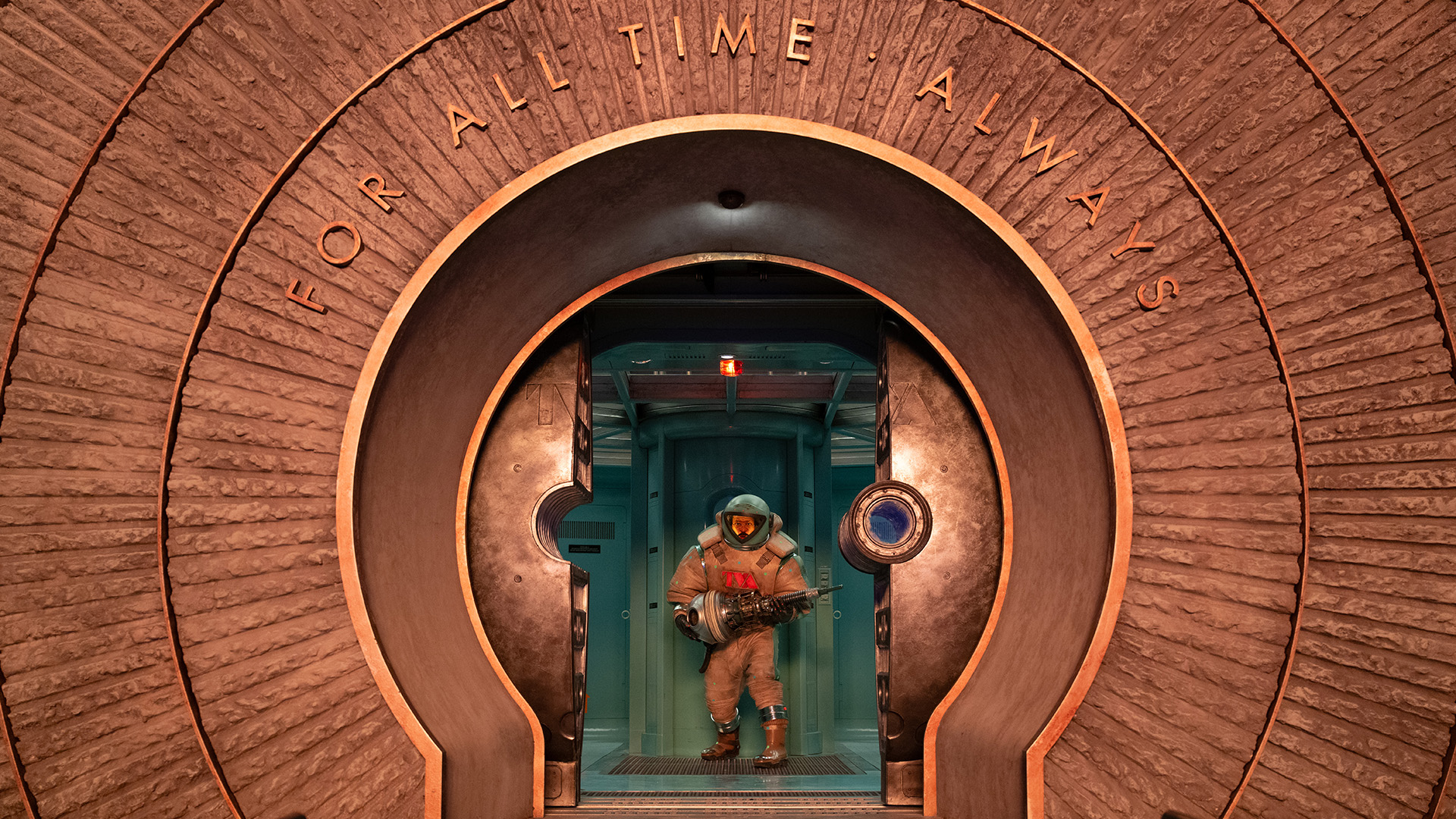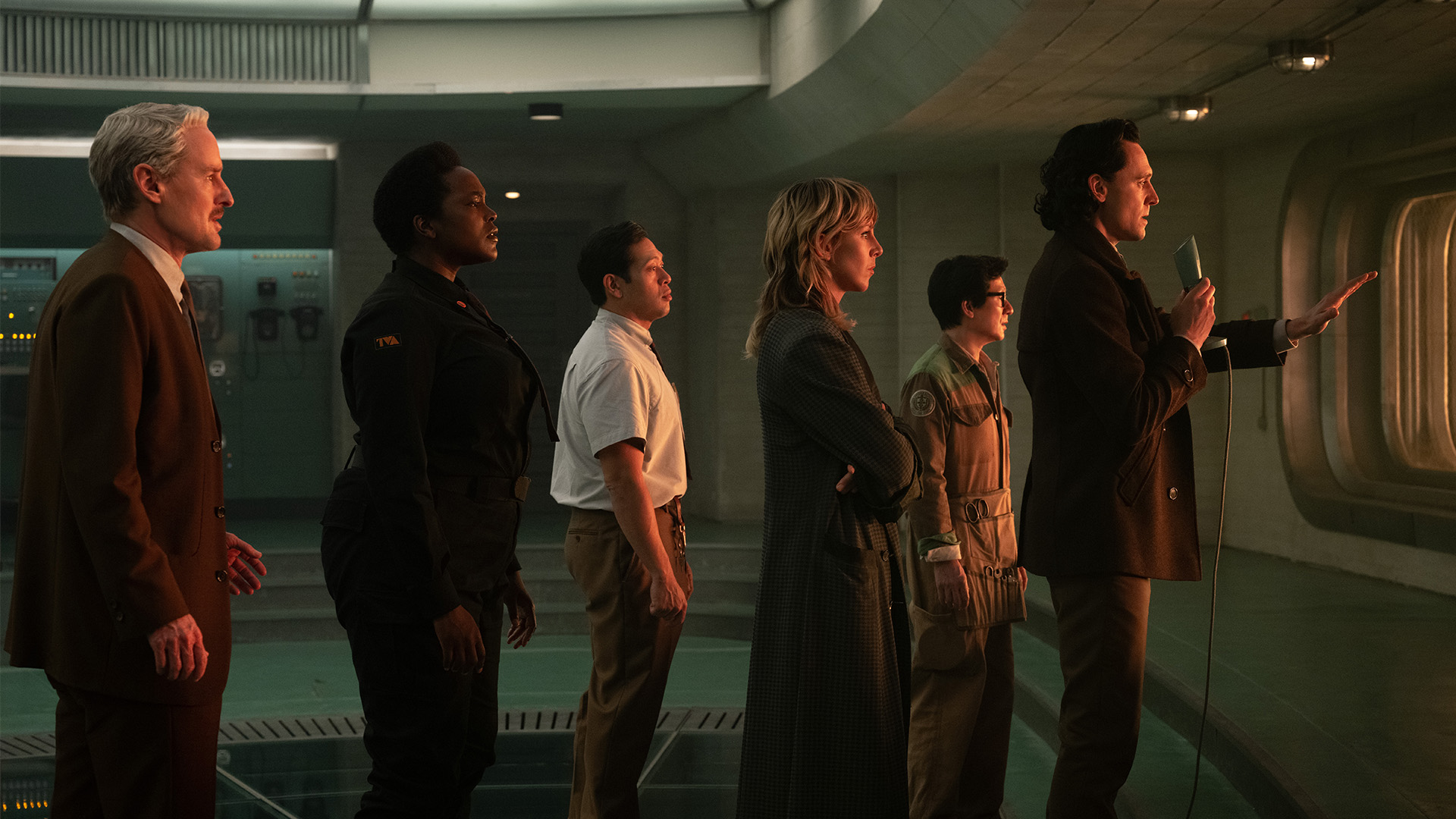GamesRadar+ Verdict
A transcendent meditation on self-sacrifice, Loki’s season 2 finale is indisputably one of the most moving and thought-provoking pieces Marvel has ever made.
Why you can trust GamesRadar+
Warning: minor spoilers for the Loki season 2 finale follow...
It means so much that Loki’s season 2 finale, and by some indication the series' conclusion, bears the same title as its very first episode: 'Glorious Purpose.'
The symmetry is part of the gimmick. Remember that the Sacred Timeline which the bureaucratic – and throughout season 2 concerningly militaristic – TVA feverishly maintains is a loop (if Ke Huy Quan’s character being named “Ouroboros” hasn’t telegraphed that by now, the novelty of the Marvel Studios title card playing in reverse must). But beyond gimmicks, the episode's name is teeming with profound specificity for Loki, a character who has been unexpectedly afforded the most depth of anyone in the crowded Marvel Cinematic Universe (MCU). The phrase "glorious burden" comes from Loki’s narcissistic introduction to himself in Marvel’s movies, delivered with Shakespearean grandeur by Tom Hiddleston. But now, it takes on a heavier meaning as Loki finds himself the only one able to save all of reality.
In the finale, co-directed by Aaron Moorhead and Justin Benson, Loki has officially mastered his chaotic time-slipping. He then embarks on a desperate journey through his past to grill the shadows of his friends (and enemies) to seek answers, as well as some personal reassurance,hoping to solve the problem of imploding infinite timelines.
Enthralling, sweeping, and gorgeous, 'Glorious Purpose' is a new triumph for Marvel’s longform storytelling. Never before has a Marvel action figure undergone such serious self-interrogation, and what’s unearthed is almost a miracle, a Rorschach test in which we the audience are not only invited to analyze Loki but ourselves, asking us what role we play in our own timelines. Truly who could have imagined an enlightening thing would ever center on the primadonna villain of 2012’s The Avengers? Even independent of the Marvel-ness of it all, the finale is by itself an engaging episode that, with equal parts intelligence and grace, wrestles with lofty notions like fate, determination, and the futility to keep control amid chaos. It’s simply wonderful, and at a time when Marvel’s output has never felt more unrewarding to follow, Loki dazzles.
A Hiddleston high

Picking up immediately from last week’s episode, which received widespread praise from so many but me, 'Glorious Purpose' is to my eyes what everyone thought 'Science/Fiction' was, a playful and layered odyssey that prioritizes the inner turmoil of its central character. This week’s finale opens with a rousing rendition of time loop tales: whilst Groundhog Day is the most obvious inspiration, there’s also echoes of Edge of Tomorrow and, I’m serious, The CW’s Legends of Tomorrow with one of its own memorable episodes.
Because it is the finale, director duo Moorhead and Benson know better than to structure an entire episode around a Groundhog Day homage. Thankfully, Loki organically shifts gears to a different plan, imbuing a uniquely ethereal feel to a most untethered-to-gravity episode. This otherworldliness follows 'Glorious Purpose' to the end, culminating in a stunning, phantasmagorical climax.
Peppered throughout are pseudo-metaphysical conversations between Loki and his show’s biggest players: Mobius (Owen Wilson), He Who Remains (Jonathan Majors, which I reluctantly admit delivers another stellar performance), and Sylvie (Sophia Di Martino). Though their verbiage sometimes gets too abstract to follow at times, the series makes a real case that the show is among Marvel’s all-time impeccably cast productions. Loki’s scripts are laced with pulp sci-fi bushwa that inferior actors could never dream of selling properly. However, here there is an ace actor with Hiddleston, who early on in the episode comes to be a technical expert like Ouroborous and impressively dashes through lines containing minefield phrases like “ion decoupler” and “adaptive exponential computing system”. The intended effect is not only that Loki has mastered the inner workings of the TVA, but that the show’s plentiful jargon is not meant to be serious. If nothing else, 'Glorious Purpose' proves what the show was meant to be all along: Tom Hiddleston getting to play in a rich, meaty role.
Making peace

Of all that Loki possesses, I remain enamored by its metaphysical symbolism and how 'Glorious Purpose' finally thrusts the throughline. The Sacred Timeline, which has spent all season in a state of dangerous flux, wraps around its characters on a grand scale as if constricting them. In concert with the show’s production design – which must be said here at the end is vastly underrated as a thing of beauty – the circular form means there’s always an enclosing feeling for these characters. It’s as though the TVA is not a cosmic satire of the workplace but actual purgatory. All of its staff are basically prisoners to time, Loki most of all. But 'Glorious Purpose' isn’t about breaking free. It’s about making peace with the surroundings, to value the good things it gives you while still having the autonomy and will to reshape what doesn’t fit.
The Loki season 2 finale is the first time I’m looking forward to revisiting a Marvel thing not because I want to rewatch satisfying set-pieces for an empty dopamine hit, but because I want to better grasp its big picture ideas and absorb its majesty. As of now, it should not be a controversial statement that Loki is Marvel’s most evolved character; originally a two-dimensional villain in a movie made of candy and fireworks, Loki’s subsequent fandom catapulted him into thematic spaces unimaginable until the streaming era. I cannot say that Loki in its totality is the best Marvel story ever, I can only say that it ended so well. What strange timing that in the same weekend The Marvels opens in theaters, the newest and maybe last episode of Loki leaves me wanting more.
All of Loki season 2 is streaming now on Disney Plus. For more on the MCU show, check out our deep-dives on:
- When does Loki season 2 take place on the Marvel timeline?
- Loki season 2 episode 1 recap and Easter eggs
- Loki season 2 episode 2 recap and Easter eggs
- Loki season 2 episode 3 recap and Easter eggs
- Loki season 2 episode 4 recap and Easter eggs
- Loki season 2 episode 5 review
- How to watch the Marvel movies in order
- Upcoming Marvel movies and shows
- Victor Timely comic book history explained
- He Who Remains comic book history explained
- The Time Variance Authority comic book history explained
- Mobius comic book history explained
- Sylvie comic book history explained
- What is time-slipping?
- All the differences between comic book Loki and show Loki
- Brad Wolfe isn't the Zaniac fans know from the comics
- What is the Zaniac in Marvel Comics?
More info
| Genre | Superhero |

Eric Francisco is a freelance entertainment journalist and graduate of Rutgers University. If a movie or TV show has superheroes, spaceships, kung fu, or John Cena, he's your guy to make sense of it. A former senior writer at Inverse, his byline has also appeared at Vulture, The Daily Beast, Observer, and The Mary Sue. You can find him screaming at Devils hockey games or dodging enemy fire in Call of Duty: Warzone.



